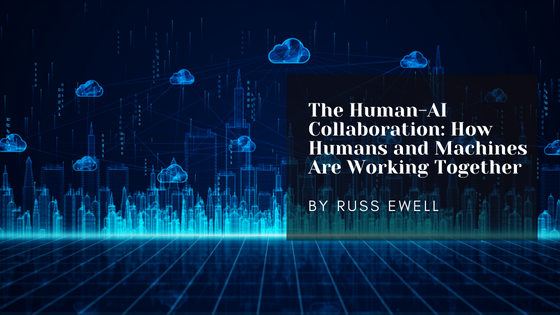In today’s rapidly evolving technological landscape, the collaboration between humans and artificial intelligence (AI) is reshaping industries, enhancing productivity, and pushing the boundaries of what’s possible. This synergy between humans and machines is not just a futuristic concept; it’s happening right now across various sectors, and its impact is profound.
The Rise of AI
Artificial intelligence has made significant strides in recent years, thanks to advances in machine learning, deep learning, and natural language processing. These technologies have enabled machines to process vast amounts of data, recognize patterns, and make decisions based on complex algorithms. AI systems can now perform tasks that were once the exclusive domain of humans, such as image recognition, language translation, and even medical diagnosis.
The Collaboration Paradigm
Instead of seeing AI as a replacement for human jobs, the collaboration paradigm recognizes that AI and humans have complementary strengths. While AI excels at data processing and repetitive tasks, humans bring creativity, empathy, and nuanced understanding to the table. Together, they form a powerful partnership that can achieve remarkable results.
- Healthcare: AI in Medical Diagnosis
In the healthcare sector, AI is playing a pivotal role in medical diagnosis. Machine learning models can analyze medical images like X-rays and MRIs with incredible accuracy, helping doctors detect diseases and conditions earlier and more precisely. This collaboration allows healthcare professionals to focus on patient care while AI assists with data interpretation.
- Finance: AI-Driven Investment Strategies
In finance, AI is revolutionizing investment strategies. Hedge funds and asset management firms are using AI algorithms to analyze market trends, assess risk, and make investment decisions. Human experts work alongside these AI systems to fine-tune strategies, resulting in more profitable portfolios.
- Customer Service: Chatbots and Human Agents
The customer service industry has witnessed a transformation with the integration of AI-driven chatbots. These bots handle routine inquiries, leaving human agents to handle complex issues that require empathy and human understanding. This not only improves efficiency but also enhances the customer experience.
- Education: Personalized Learning
In education, AI is paving the way for personalized learning experiences. AI algorithms analyze student data to identify individual strengths and weaknesses, enabling educators to tailor their teaching methods to each student’s needs. This approach improves learning outcomes and helps bridge achievement gaps.
- Manufacturing: Collaborative Robots
Manufacturing has embraced collaborative robots, or cobots. These machines work alongside human workers, enhancing productivity and safety on the factory floor. Cobots can perform repetitive and physically demanding tasks, allowing humans to focus on more skilled and creative aspects of production.
Challenges and Ethical Considerations
While the collaboration between humans and AI brings numerous benefits, it also presents challenges. Privacy concerns, bias in AI algorithms, and the potential for job displacement are important issues that must be addressed. Ethical considerations, such as transparency in AI decision-making, fairness, and accountability, are critical to ensure that AI is used responsibly.
The Future of Collaboration
The future of human-AI collaboration holds immense potential. As AI technology continues to advance, the scope of tasks that can be automated or augmented by machines will expand. However, the key to harnessing this potential lies in striking the right balance between human and AI involvement, ensuring that AI serves as a tool to amplify human capabilities rather than replace them.
The collaboration between humans and AI is reshaping industries and driving innovation. This partnership leverages the unique strengths of both humans and machines, resulting in improved productivity, better decision-making, and enhanced experiences across various sectors. As we navigate the challenges and ethical considerations associated with this collaboration, we have the opportunity to shape a future where humans and AI work together to achieve remarkable feats.

